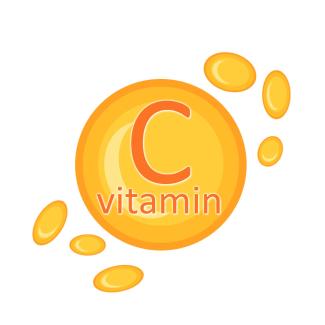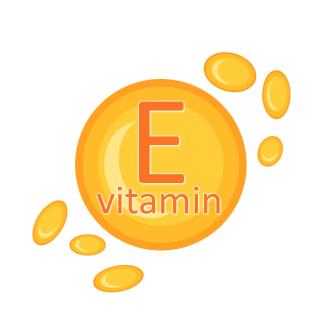
Vitamin C, also known as ascorbic acid, is an essential nutrient for the human body. It serves a variety of important functions, and its presence is crucial for maintaining good health. Here are some key reasons why we need vitamin C:
- Antioxidant Protection: Vitamin C is a powerful antioxidant, which means it helps protect the body from oxidative stress and free radicals. Oxidative stress is associated with a range of chronic diseases, including cancer, heart disease, and aging. Antioxidants like vitamin C help neutralize these harmful molecules.
- Collagen Production: Vitamin C plays a fundamental role in the synthesis of collagen, a protein that forms the structural basis of connective tissues in the body. This includes the skin, tendons, ligaments, and blood vessels. Adequate vitamin C is necessary for wound healing and maintaining healthy skin.
- Immune System Support: Vitamin C is known for its role in supporting the immune system. It helps boost the production and function of white blood cells, which are essential for defending the body against infections and illnesses.
- Iron Absorption: Vitamin C enhances the absorption of non-heme iron, the type of iron found in plant-based foods like spinach and beans. This is particularly important for individuals who follow vegetarian or vegan diets, as they may have a harder time absorbing iron.
- Neurotransmitter Synthesis: Vitamin C is involved in the production of neurotransmitters, such as serotonin and norepinephrine, which play a role in mood regulation and the nervous system.
- Skin Health: Collagen, which relies on vitamin C, is vital for skin health. Vitamin C's antioxidant properties also help protect the skin from UV damage and may promote a more youthful appearance.
- Wound Healing: Vitamin C is necessary for the formation of new blood vessels and connective tissue during the healing process. It can aid in recovering from injuries and surgeries.
- Heart Health: Some studies suggest that vitamin C may help reduce the risk of cardiovascular diseases by improving blood vessel function, reducing inflammation, and lowering blood pressure.
- Eye Health: Vitamin C may help reduce the risk of age-related macular degeneration, a leading cause of vision loss in older adults.
- General Health and Well-Being: Vitamin C is essential for overall health and well-being. It helps protect cells and supports various biochemical processes throughout the body.
It's important to note that the body cannot produce or store vitamin C, so it must be obtained through the diet or supplements. Good food sources of vitamin C include citrus fruits (oranges, lemons, and grapefruits), strawberries, kiwi, bell peppers, broccoli, and spinach. The recommended daily intake of vitamin C varies by age, gender, and other factors, but getting an adequate amount is important for maintaining health and preventing vitamin C deficiency, which can lead to scurvy and other health issues.
Vitamin C - the best foods with a high vitamin C content
Vitamin C is abundant in a variety of fruits and vegetables. Here are some of the best foods with high vitamin C content:
- Citrus Fruits:
- Oranges: Oranges are well-known for their high vitamin C content. One medium-sized orange can provide around 70 milligrams of vitamin C.
- Grapefruits: Both pink and red grapefruits are good sources of vitamin C, offering about 70-90 milligrams per fruit.
- Lemons: Lemons are packed with vitamin C, with approximately 30-40 milligrams per lemon.
- Kiwifruit: Kiwifruit is exceptionally rich in vitamin C, with one medium-sized kiwi providing more than 70 milligrams.
- Strawberries: Strawberries are a delicious source of vitamin C, offering around 90 milligrams per cup.
- Guava: Guava is one of the highest vitamin C content fruits, with some varieties providing over 200 milligrams of vitamin C in just one fruit.
- Papaya: One cup of papaya contains approximately 88 milligrams of vitamin C.
- Bell Peppers: Red and green bell peppers are excellent sources of vitamin C. One cup of chopped red pepper, for example, can supply more than 150 milligrams of vitamin C.
- Broccoli: Broccoli is a cruciferous vegetable rich in vitamin C. One cup of cooked broccoli can provide around 100 milligrams of vitamin C.
- Brussels Sprouts: Brussels sprouts are another cruciferous vegetable with a good vitamin C content, delivering around 75 milligrams per cup when cooked.
- Pineapple: One cup of fresh pineapple chunks contains about 80 milligrams of vitamin C.
- Mango: Mangos are a tropical fruit rich in vitamin C, offering around 60 milligrams per fruit.
- Kiwi Berries: These small, kiwifruit-like berries are packed with vitamin C, with a handful containing a significant portion of your daily requirement.
- Acerola Cherries: These cherries are one of the highest natural sources of vitamin C, with some varieties containing over 1,000 milligrams of vitamin C per 100 grams.
It's essential to include a variety of these vitamin C-rich foods in your diet to ensure you get an adequate intake of this important nutrient. Cooking methods, such as boiling, can cause some vitamin C loss, so eating some of these foods raw or lightly cooked can help preserve their vitamin C content. Additionally, while these foods are excellent sources of vitamin C, it's generally best to obtain your nutrients from a balanced diet rather than relying solely on supplements.






